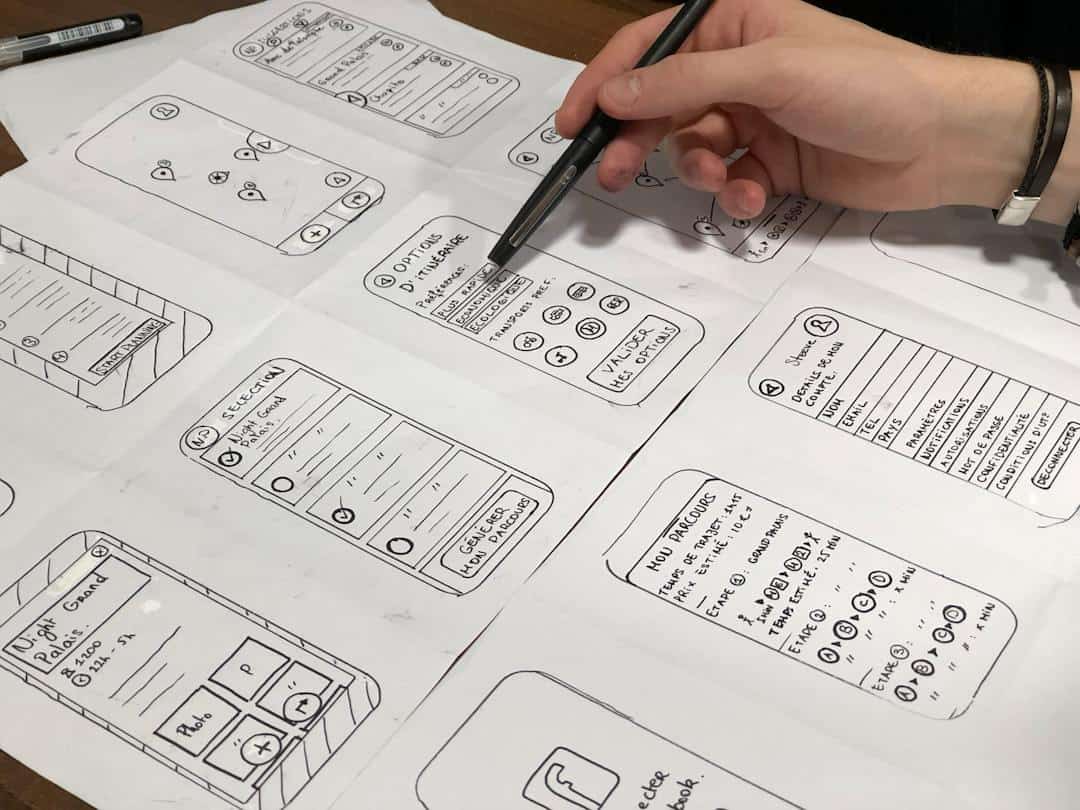Do you feel like you need more than 24 hours because you’re drowning in a sea of tasks? I’ve been there myself, and it’s frustrating, I know. Especially if you have more than one job, you have to balance your work and personal life, which is overwhelming at times.
In my case, I have two jobs and an active lifestyle, but I was able to maintain a work-life balance using various effective time management strategies.
Don’t worry. In this article, I’ll share how I managed my time effectively, leaving a poor time management practice. By doing so, I still have time to spend with my family and friends, travel, and do things I enjoy—all because of having more free time.
And you can do that, too! With the right and effective time management strategies, you can earn and live a life without burning yourself out.
Effective Time Management Strategies to Maintain Work-Life Balance
When you’re not getting enough shut-eye, it may mean one thing: You’re not managing your time effectively. That’s real talk because we all have the same 24 hours in a day, but why do some people have time to enjoy life while you can’t?
Maybe because you just need to set priorities and enhance your time management skills.
If you want to change that reality, you may want to try this handful of techniques that’ll help you regain control over your schedule, skyrocket your productivity, and, of course, allow you to have more me time.
1. Setting A Goal

Knowing where you’re headed is the key to maximizing your time. This is true not just in effective time management strategies but also in different aspects of life.
Do you know what you want to achieve? If yes, then you know what tasks are more important than the others. You can also “delete” those activities that are bogging you down or distracting you from achieving your goals.
However, you have to remember that goal setting requires specificity and measurability.
Vague intentions like “be more productive” or “work harder” won’t cut it. You need concrete targets to aim for, like “complete project X by date Y” or “increase sales by Z percent this quarter.”
Once you set clear goals, break them down into smaller, actionable steps, having more manageable time. What do you need to do today, this week, and this month to make progress?
Assign deadlines to each milestone and hold yourself accountable.
2. Prioritizing Tasks with the Eisenhower Matrix

Checked your goals and see that you have so many tasks at hand? Why not try the Eisenhower Matrix? It’s a new trend in prioritizing tasks—simple yet powerful.
With this technique, you can categorize your tasks based on urgency and importance. Doing so lets you quickly identify the tasks that can wait and the ones requiring immediate action.
First, create four quadrants—they’ll serve as prioritization boxes.
In the first quadrant, label it with “Do,” where you’ll list down the tasks that you have to tackle ASAP. So, when you look at this quadrant, you know that the tasks therein are urgent and essential.
Next, label a quadrant with “Decide.” Here, you can list all the essential but not urgent tasks, reminding you to know what things to schedule for a later date.
Label the third quadrant “Delegate.” This is where you’ll put tasks that others can do.
Lastly, label the fourth quadrant as “Delete.” And, of course, these are tasks that are not necessary, not urgent—tasks that may only waste your time.
By using the Eisenhower Matrix, you can schedule appropriately, especially since you can zero in on the tasks that make the biggest impact while learning to delegate or eliminate the ones that don’t.
3. Breaking Down Tasks into Manageable Activities
Have big tasks? When you’re faced with a giant project, it can be overwhelming to even know where to start.
I break down large, challenging tasks into smaller, more manageable chunks, which I consider one of the most common and effective time management strategies.
It’s like eating your favorite steak—you can’t swallow it all at once, but you need to do it one bite at a time.
Breaking it down into smaller steps makes it seem much more doable. Plus, you get the satisfaction of crossing things off your list as you go.
When you manage time like a pro, you’ll feel more fulfilled at work and less overwhelmed by life. Talk about a win-win situation!
4. Avoiding Multitasking
Do you know that feeling when everyone’s hurrying to finish everything? You’re not alone. In today’s fast-paced, always-on work environment, you’re not in if you can’t do a lot. But hey, that’s what kills productivity.
We’ve all been there—juggling emails, phone calls, and projects all at once, feeling like productivity superheroes. But here’s the thing: multitasking is a trap.

In fact, multitasking is a productivity killer. Research shows that trying to tackle too many things simultaneously can reduce efficiency.
Why? Because your brain has to keep changing directions, which takes time and mental power. It’s like revving your engine without ever shifting into drive – you might feel busy, but you’re not actually getting anywhere.
When multitasking, you’re not giving any one particular task 100% of your effort. Instead, your focus is divided by how many tasks you’re doing. Say you’re doing four tasks.
Each might only get about 25% of your attention, meaning none of them receive the quality or focus they deserve.
I learned that the hard way. I thought that doing everything at once would make me productive. Later, I learned that the more I juggle things, the less I can finish them. And when I finish one or two, they’re not the quality I wanted.
So what did I do? Focus on one task at a time, which is one of the best ways to improve your time management skills.
I give each task my full attention and resist the urge to switch back from one task to another. It might feel counterintuitive at first, but trust me – your productivity will thank you.
5. Blocking Off Time
Are you like me, who becomes distracted by a simple phone buzz indicating a notification? That’s a momentum killer!
Before I knew it, I’d fallen down the rabbit hole of checking emails, texts, and social media updates—but that’s a long-gone story.
When you’re deep in the zone, cranking away on an important project, your momentum suddenly drops because of a notification. Does this sound familiar? Maybe the result is even more familiar.
It takes an average of more than 23 minutes to regain focus after being interrupted, and the average office worker is interrupted every 11 minutes. That’s a lot of lost time and mental energy.
Worse, four hours or more have passed, and you’ve finished nothing yet.
I blocked off times to minimize distractions and stay focused. Doing so gives me a set schedule for focused work, and it’s vital to set boundaries for people since you’re letting them know that you’re unavailable during those times.
I dedicated those times to big tasks, too. That way, I can ensure that nothing can interrupt my focus.
And if external factors distract you, using tools like noise-cancelling headphones or website blockers can help.
6. Incorporating Short Breaks

Now, blocking off times to focus is okay. When you’re in the zone, it can be tempting to power through and keep working until the job is done. But if you’re not producing quality output, you may need a break.
In fact, a short break can help increase productivity and focus.
You’ll know when you need a break if you’re already feeling drained doing what you’re doing. A quick break that involves a brief stroll, deep breaths, or stretches that renew energy.
It can awaken, recharge, or give you clarity that may improve the quality of your work.
So stepping away from your desk and taking a breather is one effective time management strategy. Why? When you have the right energy to do things, you won’t have to redo your tasks.
Unlike when you try to work eight hours without a break because you think that’s productive, you’re only increasing your chances of committing mistakes.
7. Utilizing Time Trackers
It’s the end of the day, and you may be wondering where all the time went. I experienced that, too, especially when I was unaware of how to manage my time since I thought I had all the time in the world decades ago.
It was like waking up, and the next thing I was about to do was to sleep.
My accomplishments during those days? Nada. All I know is that I had time to enjoy myself but not earn money. Thankfully, I was able to change that.
Managing time is crucial, especially when working while studying. Using time trackers helped me track how much time I spent on different tasks.
If you want, you can try Toggl or RescueTime. They’re simple tools that can give you a detailed breakdown of how you’re spending your time, minute by minute.
You’ll be able to see exactly how much time you’re devoting to different tasks, projects, and distractions throughout the day.
And let me tell you, the results can be eye-opening. You might discover that you’re spending way more time on email than you realized or that those “quick” social media breaks are actually adding up to hours each week.
It’s like budgeting: You have to list your expenses to track where your money is going. Time trackers are similar—they allow you to gain insights and regain control of your time.
Since you’ll know where your time is spent, you can take preventive measures to avoid wasting your time. Try batching your email responses to a few set times each day.
And when it comes to social media, give yourself a strict time limit – and stick to it.
These simple adjustments may make a big difference, making it one of the most innovative and effective time management strategies.
8. Delegating Tasks Wisely
Think you can do it all? Of course, but only some things at once. Sometimes, you may even end up stressed out and stretched thin, especially if you’re juggling all the tasks and responsibilities.
The solution is to delegate. It’s simple: When you assign tasks to others, you can have more free time to do more important ones—high-level strategizing, creative problem-solving, and big-picture thinking.
Oh, I know some of you might think that “only I can do perfection.” Yes, we want top-quality outputs, but if you feel that others can’t provide such, you’ll be wasting much time on unimportant tasks.

So, the key here is to delegate tasks wisely, which is one of the most effective time management strategies. That means choosing the right tasks to hand off and the right people to do them. Don’t worry; there are people around you who can do these, and you just have to look.
Start by identifying time-consuming tasks, especially the ones that make you nuts but relatively low-skill or low-impact. These might include data entry, basic research, or administrative tasks that don’t require your specific expertise.
Then, look for team members or colleagues who have the skills and capacity to take on those tasks. To ensure they’ll do it right, give clear instructions on what you expect from their outputs.
Relinquishing control can be challenging, especially if you’re accustomed to handling everything independently. Nevertheless, reasonable delegation can augment your productivity and effectiveness.
Wouldn’t it be better if you had additional time to focus on more important responsibilities?
9. Setting Time Limits
Have you experienced your brain being tied in knots because you’re overthinking a decision? In my case, I analyze every angle until I flip-flop back and forth—but that was before.
Now, I have learned that one of the most effective time management strategies is to set time limits when making decisions.
Why? I consider time to be the most valuable asset. Once it passes, we can no longer take it back. And that’s what happens when we waste time overthinking and come up with no clear choice—just wasted time.
But when I started giving myself a deadline, I realized that I could force myself to decide promptly. They’re good decisions, although I made them quickly. Also, work faster. It greatly helps.
Thankfully, I no longer spend sleepless nights thinking and weighing things only to come up with unclear decisions. However, these prompt decisions don’t mean hasty ones.
Setting a time limit, especially if things to be decided are on a regular basis, helps me avoid overanalyzing.
In short, I can use those saved times to finish other tasks.
You may want to consider these practical steps if you want to save time from overanalyzing things:
- List down the decisions needed as well as their key factors.
- Identify whether these decisions are minor or complex. Then, set a time for each: 30 minutes for complex and 15 minutes for minor.
- Within the time limit, weigh the options and come up with a conclusion.
- Now, once you hear the sound of the timer going off, make a final decision and move on.
10. Doing The ‘Hardest’ Thing First Every Day
Sometimes, we tend to set aside tricky tasks. However, studies show that completing the challenging task first can help boost productivity, making it one of the most effective time management methods.
The principle behind this strategy is rooted in psychology. Completing the most challenging task first can significantly boost your sense of accomplishment, thereby increasing motivation for other tasks throughout the day.
This method, often referred to as “eating that frog,” is based on Brian Tracy’s book of the same name. And what’s it all about? When we do the most crucial task at the start of our day, it makes everything else seem easier by comparison.

To make it successful, do the task without thinking about procrastination. Techniques such as Pomodoro can help maintain focus during these periods, especially if you’re easily distracted.
A 25-minute task seems a lot easier to accomplish than a 4-hour straight task.
Moreover, you have to check yourself. Are you a night owl or a morning person? Knowing this is vital so you know which time of day you’re most productive. Then, schedule your hardest tasks at that time.
Doing so lets you capitalize on high energy levels, meaning you have a better chance of completing the task without thinking about how much time you need to do it.
FAQs
What five techniques make an effective time management plan?
An effective time management technique is different for every person. However, some of these are to prioritize tasks, break down big projects, set specific goals, use a time tracker, and schedule breaks after accomplishing your to-do list to refresh.
What are the 5 P’s of time management?
The 5 P’s are Prioritizing, Planning, Performing, Pausing (taking breaks), and Persevering. Stick with these for peak productivity.
What are the seven steps of an effective time management plan?
Set clear goals, prioritize your tasks, break tasks into smaller steps, delegate what you can to minimize distractions, schedule dedicated work times, and review and adjust as needed.
What are the best time management strategies?
Some of the most effective time management techniques involve focusing on high-priority tasks first, using the Eisenhower Matrix. Limiting multitasking and setting boundaries around social media use during work hours also help. Lastly, practice good stress management to stay focused.
Conclusion
Effective time management strategies boost productivity and reduce stress. By prioritizing tasks, breaking them down, and minimizing distractions, you’ll be amazed at how much more you can accomplish in a day since you now have a manageable time.
Remember, it’s not about working harder; it’s about working smarter, which includes having to improve time management practices. Implementing these strategies consistently is critical to success.
Start small, be patient with yourself, and watch as your productivity soars to new heights.
Seize the opportunity to master your time management skills today and experience the liberating sensation of accomplishing your goals with ease. Start now, and watch as your future self reaps the rewards of your proactive decision.







